Does Hair Gel Cause Hair Loss? What You Need to Know
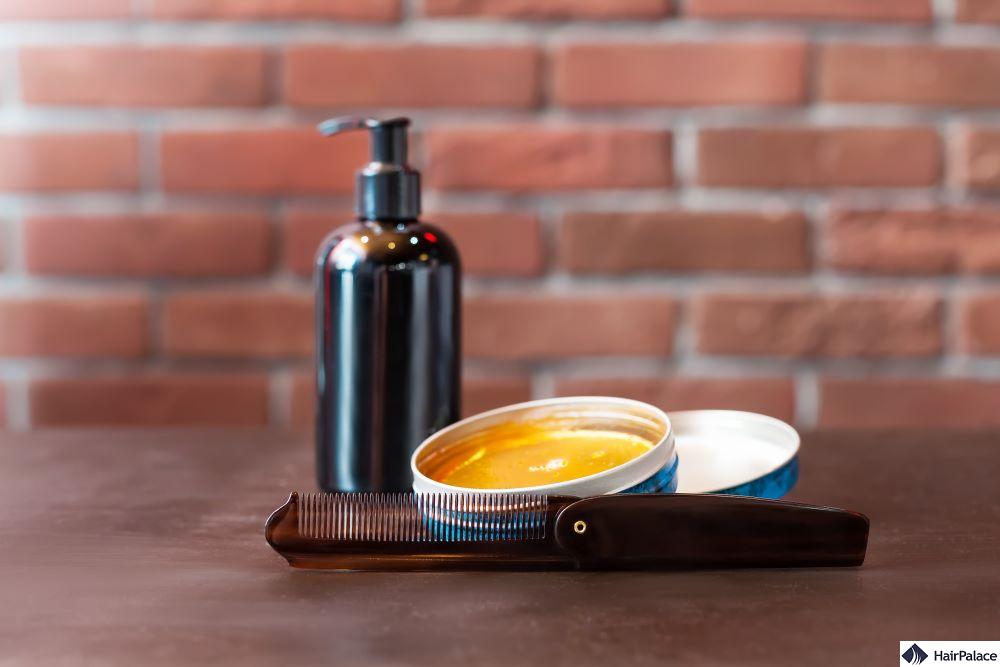
Hair gel is a go-to styling product for many, offering the perfect hold for sleek looks, spiky styles, or defined curls.
But with its popularity comes a common concern: does hair gel cause hair loss?
While hair gel doesn’t directly cause hair loss, improper use, low-quality products, or harsh ingredients can create conditions that may negatively impact hair health.
In this article, we’ll dive into how hair gel interacts with your hair and scalp, explore potential risks, and share tips on using it safely without compromising your locks.
Whether you’re a daily gel user or just curious, here’s everything you need to know to keep your hair looking great and healthy.
- What is in hair gel?
- Does hair gel cause hair loss?
- How does hair gel affect hair follicles?
- How can you minimize the negative aspects?
- Which ingredients should you avoid?
- Side effects of hair gel
What is in hair gel?
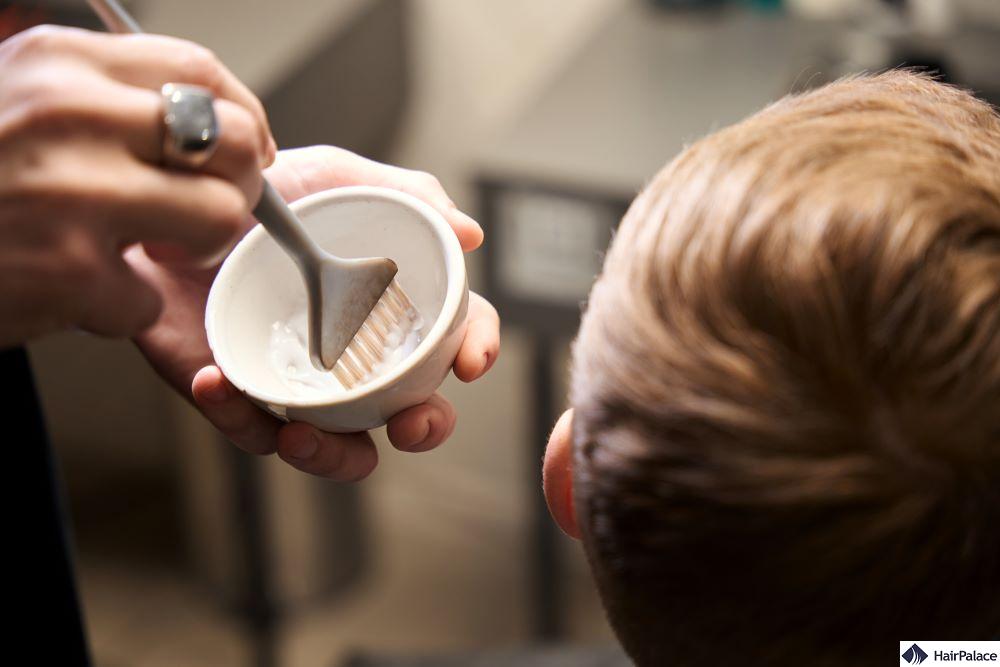
Hair gel typically contains water, polymers, thickening agents, conditioning agents, preservatives, and fragrances.
While hair gel ingredients work together to style hair effectively, some may negatively impact hair roots and scalp health when used excessively or improperly.
While individual products can vary, most hair gels contain the following ingredients:
- Water: Acts as a base for the gel and helps dissolve other ingredients.
- Polymers: These synthetic ingredients form a film around the hair to hold it in place. It may clog hair follicles and hinder scalp health.
- Alcohols are often included to help the gel dry quickly after application. However, they can dry the scalp and strip moisture from the hair and scalp, leading to scalp irritation.
- Thickening Agents are used to give the gel its texture and consistency. They are generally considered safe, but build-up can occur with poor scalp hygiene.
- Preservatives: Extend the shelf life of the product by preventing microbial growth. Parabens and certain formaldehyde-releasing agents may cause scalp irritation.
- Fragrances: Added for scent, often synthetic. Synthetic fragrances can irritate the scalp, especially in individuals with sensitive skin or allergies.
- Conditioning Agents: Help reduce frizz and make hair appear smooth. Silicones may cause build-up over time, leading to a dull appearance and difficulty in cleaning.
- Antimicrobial Agents: Prevent bacterial or fungal growth in the product. Triclosan has been linked to skin irritation and potential endocrine disruption with prolonged exposure.
- Colourants: Used to give the gel an appealing colour. Certain artificial colourants may irritate sensitive scalps.
Does hair gel cause hair loss?
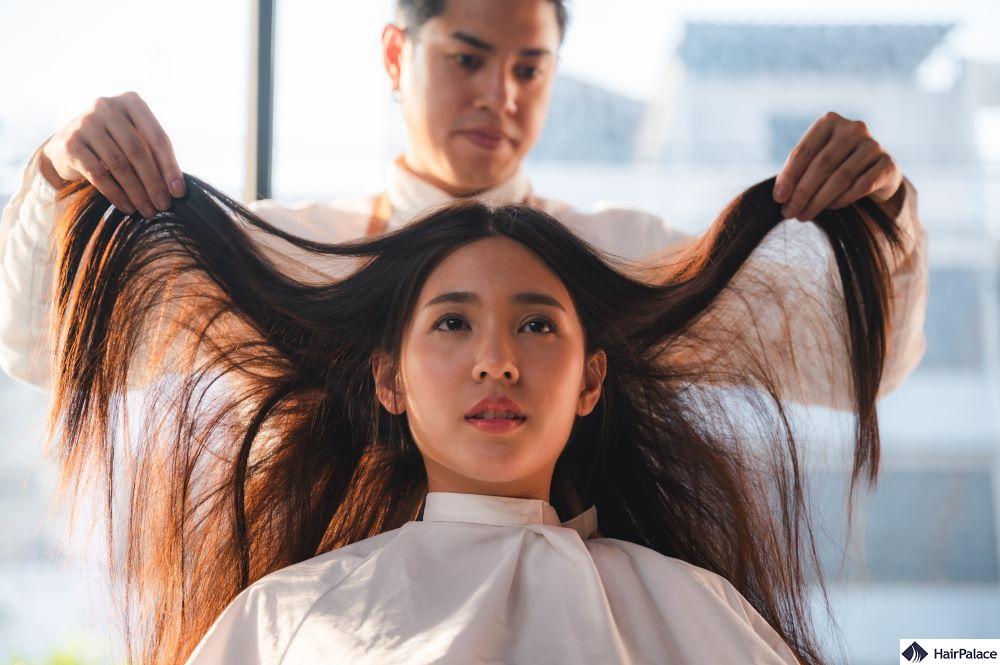
Hair gel does not directly cause hair loss, but improper use or certain ingredients can create conditions that may damage healthy hair.
When hair gel is used regularly without thorough washing, it can lead to product build-up on the scalp.
This build-up can clog hair follicles, causing scalp irritation, and dandruff, and potentially impairing hair growth.
Many hair gels also contain alcohol or harsh chemicals that dry out the scalp and hair. This dryness weakens hair strands, making them more susceptible to breakage.
Additionally, some gels include synthetic fragrances, preservatives, or allergens that may irritate sensitive scalps.
Prolonged irritation or inflammation can, over time, contribute to hair fall.
Using hair gel daily and combining it with tight hairstyles, such as slicked-back looks or tight braids, can put excessive tension on hair follicles.
This strain may lead to traction alopecia, a form of hair loss caused by repeated stress on the hair.
How does hair gel affect hair follicles?
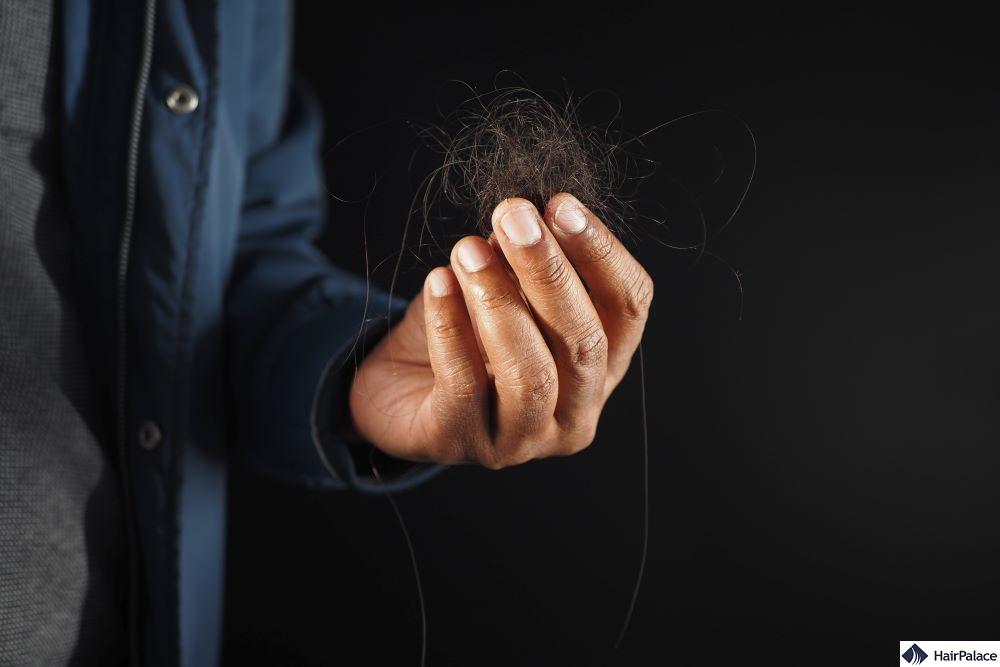
Hair gel can affect hair follicles in both positive and negative ways, depending on the product’s ingredients, frequency of use, and how well the scalp and hair are cared for.
Hair spray, and hair gel residue help shape and hold hairstyles, which can protect hair from environmental damage by keeping it in place and reducing tangling.
Some hair gels also form a thin coating around the hair shaft, temporarily protecting it from external aggressors like pollution and humidity.
However, gels containing harsh chemicals, alcohol, or synthetic fragrances can irritate the scalp.
Many gels contain drying alcohols (e.g., ethanol), which strip the scalp of natural oils.
Product buildup may block pores, potentially limiting the scalp’s natural ability to absorb nutrients or deliver them to hair follicles.
Prolonged exposure to chemicals in gels, such as parabens or artificial dyes, may alter the scalp’s natural pH balance and sebum production ultimately resulting in hair loss.
How can you minimize the negative aspects of using hair gel?
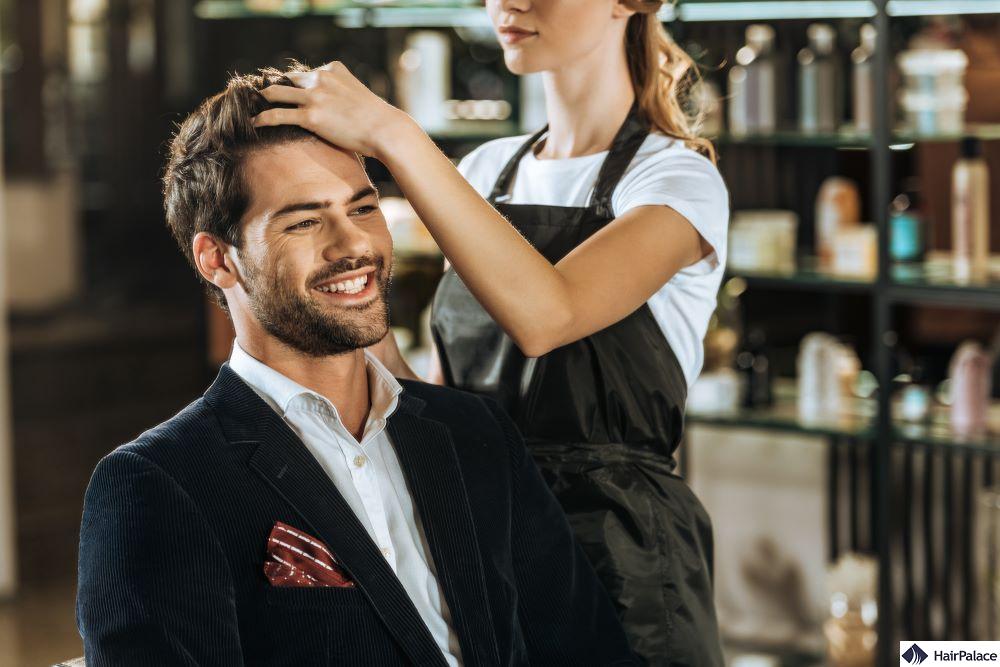
While hair gels may cause damage to your hair, you can avoid hair gel side effects with some simple measures:
- Choose Gentle Products:
Opt for alcohol-free gels with natural or nourishing ingredients, such as aloe vera or argan oil. - Avoid Excessive Use:
Limit hair gel use , and avoid applying it directly to the scalp. - Maintain Proper Hygiene:
Wash your hair regularly to remove product residue and keep the scalp clean and healthy. - Hydrate Your Scalp:
Use a moisturizing shampoo or conditioner to counteract any drying effects from hair gel. - Avoid Tight Hairstyles:
Give your hair follicles a break from tension by alternating hairstyles and avoiding constant stress on the scalp.
Which ingredients should you avoid?
When choosing a hair gel, it’s important to look out for ingredients that may negatively affect hair and scalp health, especially with regular use.
- Drying Alcohols: Alcohols are commonly used to help hair gel dry quickly but can strip moisture from the hair and scalp, leading to dryness, brittleness, and increased breakage.
- Synthetic Fragrances: These can contain allergens and irritants that may lead to scalp irritation, dryness, or allergic reactions, especially for those with sensitive skin.
- Harsh Preservatives: Parabens may disrupt hormonal balance while formaldehyde-releasing agents are potential allergens and have been linked to long-term health concerns.
- Artificial Colors: These synthetic dyes can cause scalp irritation, particularly for individuals with sensitive skin or allergies.
- Sulfates: These cleansing agents may be included in gel formulas. They can dry out the scalp and weaken the hair over time.
- Silicones: While silicones can make hair feel smooth initially, they can cause build-up over time, clogging hair follicles and leading to scalp issues.
- Polyethylene Glycol (PEG): These compounds can strip natural oils from the hair and scalp, leading to dryness and irritation.
- Triclosan: This antimicrobial agent is linked to potential endocrine disruption and skin irritation, making it unsuitable for frequent use on the scalp.
- Petrochemicals: These can coat the scalp and hair, leading to build-up and preventing the scalp from breathing properly.
- Phthalates: Often used to stabilize fragrances, phthalates are linked to hormonal disruptions and potential toxicity with prolonged use.
Side effects of hair gel
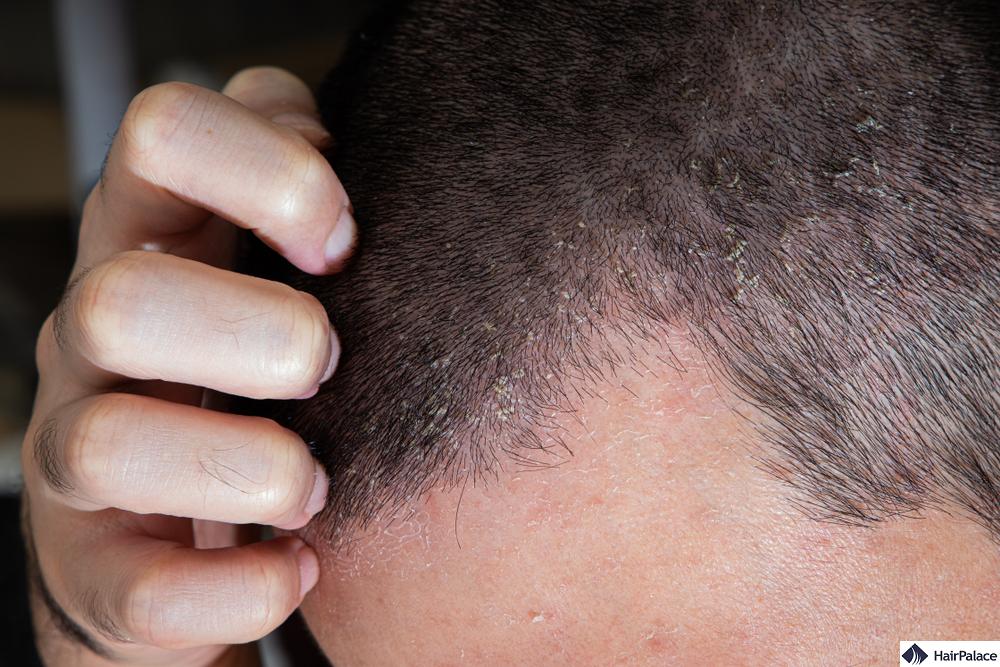
Hair gel is a popular styling product, but it may cause potential side effects, especially when it contains harsh ingredients or people use it improperly.
1. Dryness and Brittle Hair
Many hair gels contain alcohols and other drying agents that strip moisture from the hair.
Hair becomes dry, brittle, and more prone to breakage.
2. Scalp Irritation
Ingredients such as synthetic fragrances, preservatives (e.g., parabens or formaldehyde-releasing agents), and dyes can irritate sensitive skin.
Redness, itching, or flakiness on the scalp, which may worsen with frequent use.
3. Hair Breakage
The drying and hardening effects of some gels can make hair strands less flexible.
Hair may snap or break, particularly during combing or styling.
4. Product Build-Up
Frequent use of hair gel without proper washing can lead to residue accumulation on the scalp and hair.
This build-up can clog hair follicles, affecting scalp health and potentially leading to dandruff or reduced hair growth.
5. Dandruff
The drying effects of alcohol and product build-up can disrupt the scalp’s natural balance.
Flaking and dandruff may occur, particularly in individuals with sensitive or dry scalps.
6. Hair Thinning or Loss (Indirect)
Scalp irritation, clogged follicles, and traction from tight hairstyles used with gel can weaken hair follicles over time.
Increased hair shedding or thinning, especially if combined with poor scalp care.
7. Allergic Reactions
Some gels contain allergens like synthetic fragrances, dyes, or preservatives.
Swelling, redness, hives, or severe scalp discomfort in individuals with allergies.
8. Greasy or Sticky Residue
Poor-quality gels or over-application can leave a greasy or sticky layer on the hair and scalp.
Hair looks unclean, and it may attract dirt and pollutants.
9. Traction Alopecia
Using hair gel for tight hairstyles (e.g., slicked-back looks or tight braids) puts constant stress on hair follicles.
Prolonged tension can lead to follicle damage and hair loss in those areas.
10. Long-Term Scalp Imbalance
Regular use of harsh gels can disrupt the scalp’s natural pH and oil production.
This imbalance can lead to chronic dryness, sensitivity, or an overproduction of sebum, making the scalp oily.
Last medically reviewed on April 2nd, 2025
- Apoorva Mahajan, Advancements in polymers used in hair care a reviewhttps://www.researchgate.net/publication/301221021_Advancements_in_polymers_used_in_hair_care_a_review
- McMichael AJ. Hair breakage in normal and weathered hair: Focus on the black patient. J Investig Dermatol Symp Proc. 2007;12:6–9. doi: 10.1038/sj.jidsymp.5650047. https://pubmed.ncbi.nlm.nih.gov/18004289/
- Robbins CR. Chemical and Physical Behavior of Human Hair. 4th ed. New York: Springer; 2013. https://scholar.google.com/scholar_lookup?title=Chemical%20and%20Physical%20Behavior%20of%20Human%20Hair&author=CR%20Robbins&publication_year=2013&
- Hamilton JB. Patterned loos of hair in man: types and incidence. Annals of the New York Academy of Sciences. 1951;53(3):708–28.https://pubmed.ncbi.nlm.nih.gov/14819896


